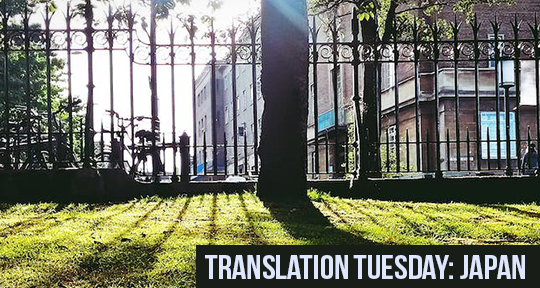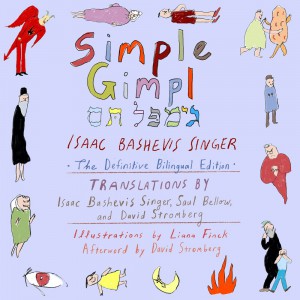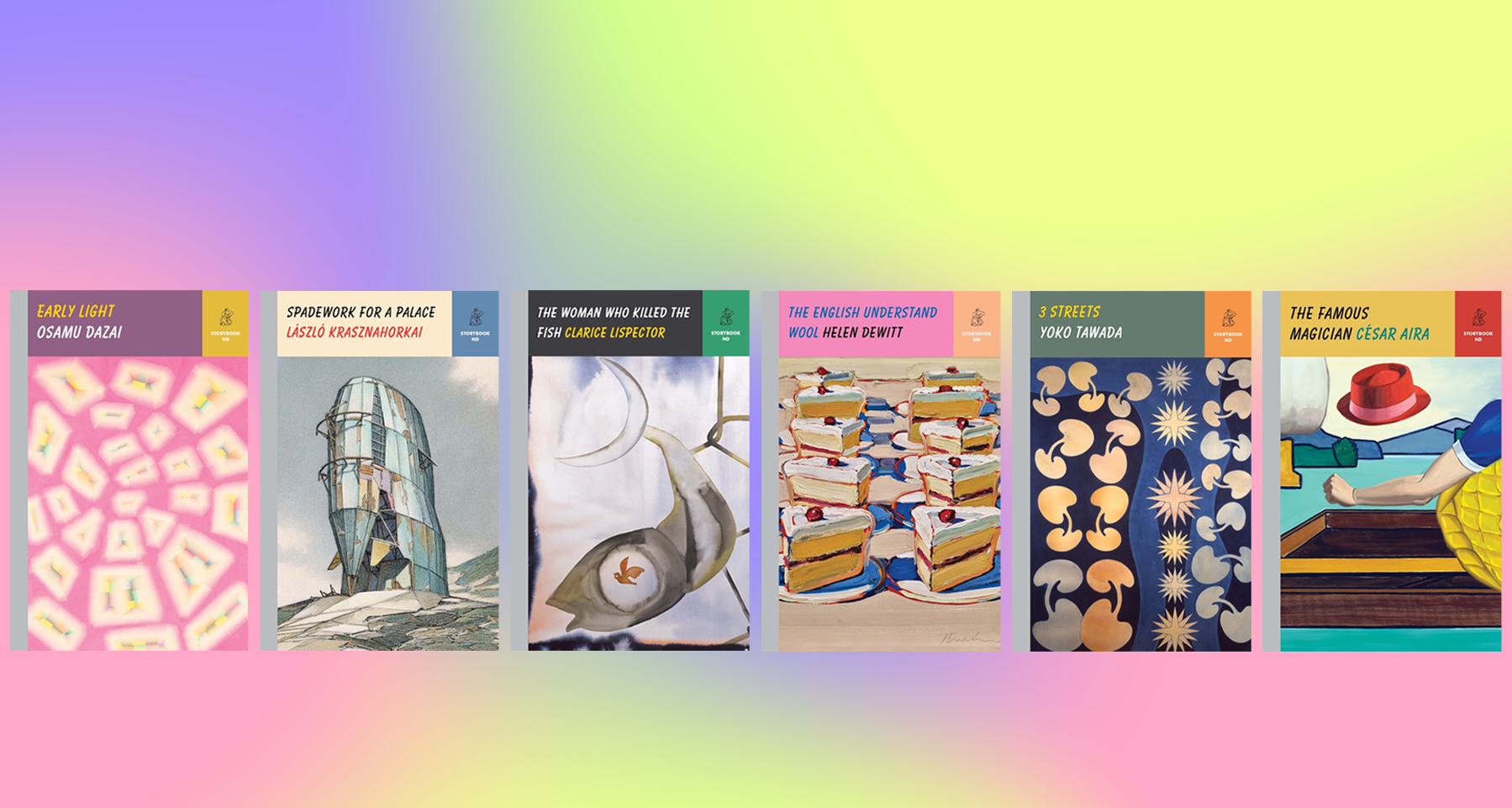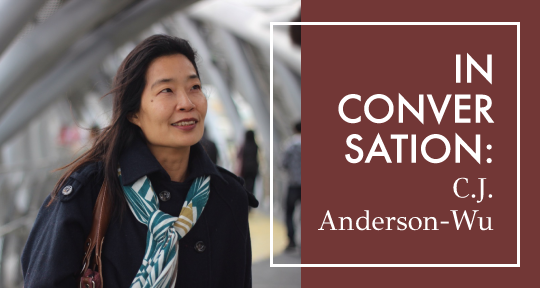A sensitive college flunker enacts sweet, obscure revenge in this excellent short story by Osamu Dazai. Here’s how it’s done: saunter into the finals of a year you’ve as good as failed; sit triumphant among your more studious peers; inflict an essay on your professor that pantses his sacred cows. The rush of emotions touched off by this act of gratuitous non-conformity is exhilarating, palpable, and very possibly contagious—anomie-struck flunkers, take note; professors of said flunkers, prepare yourselves. Major credit must go to Laurie Raye for rendering Dazai’s Japanese in a vivid, sparking English.
Dazai’s works are filled with irreverence, animus, and snippets of autobiographical detail. Knowledge of his life enhances readings of his works, as Raye explains in their translator’s note:
“I’ll stab him! I thought. What an absolute scoundrel!” So Dazai wrote to Yasunari Kawabata, one of the judges for the first Akutagawa Prize, when his story Retrogression failed to win. A collection of intertwined autobiographical tales from the author’s life, Retrogression starts with the protagonist’s death as an ‘old man’ of twenty-five and regresses back through a life of sin and decadence. Out of all these stories, The Thief is the odd one out. It was added later, as part of his first short story collection paradoxically named The Final Years. This paradox defined his career, culminating in fiction that explored what it meant to feel world-weary, disassociated from conventional society, and—in the titular spirit of his most famous book—‘no longer human’.
Dazai fills his autobiographical stories with obscure references and The Thief is no exception. The red-faced professor was most likely Yutaka Tatsuno, professor of modern French literature at Tokyo University from 1921 to 1948. Based on what we know about Tatsuno’s students, the ‘number one poet’ could have been a reference to Tatsuji Miyoshi who studied French literature with Tatsuno from 1925-1928. The ‘number one literary critic’ seems likely to have been Hideo Kobayashi, generally regarded as one of Japan’s foremost literary critics, but could also refer to Hidemi Kon, another critic and essayist who studied in this fateful cohort. Given how Dazai left us with enough breadcrumbs to work out the identities of the aforementioned students, it is unfortunate that the up-and-coming, rabbit-hearted writer remains a mystery. It is tempting to think he was based on Ibuse Masuji, his longtime friend whom he met the same month the story is set. Though older than Dazai, Ibuse studied French and was known to be so shy as to avoid eye contact when talking to others.
– Laurie Raye
The Thief
There was no doubt that I’d failed the year, but I was still going to take the exam. The beauty of a worthless effort. I was fascinated by that beauty. This morning I had woken up early, and for the first time in a year I put my arms through my school uniform and walked through those bright iron gates, big and tall and emblazoned with the Imperial chrysanthemum. I found myself passing under them with some trepidation. Immediately upon entering the grounds there are rows of gingko trees. Ten trees on the right side and another ten trees on the left, all of them giants. When the leaves are in full bloom the road ahead becomes so dim that it’s like a tunnel. Now, though, there isn’t a single leaf. At the end of the boulevard there sat a large, red-bricked building. This was the auditorium. I had only seen the inside of this building once, during the entrance ceremony, and it had given me the impression of a temple. I looked up at the electric clock on the top of the auditorium tower. There were still fifteen minutes left until the exam. Affection filled my eyes as I passed the bronze statue dedicated to the father of a detective fiction novelist and headed down the gentle slope to my right, coming out into the park. Once upon a time this had been the garden of a renowned daimyo. In the pond were common carp, scarlet carp and softshell turtles. Around five or six years ago a pair of cranes were seen frolicking here, and snakes still slither in the grass. Migratory wild geese and ducks also stop to rest their wings in this pond. The whole garden is actually less than 200 tsubo in size, but looks more like 1000 tsubo – an excellent landscaping trick. I sat down on the bamboo grass by the edge of the pond, put my back against the stump of an old oak tree, and stretched both legs out in front of me. Where the path forked lay a line of rocks of various shapes and sizes, beyond which spread the wide open water. The surface of the pond shone white under the cloudy sky and rippled as if tickled by the furrows of tiny waves. After casually crossing my legs, I muttered to myself.






